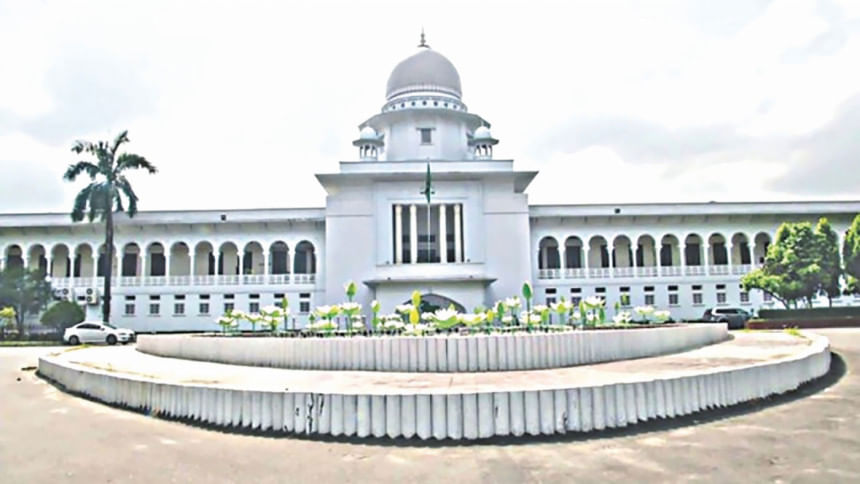Judiciary participating in law-making An analysis on the Southern Solar Power Ltd Case

In the 2019 case, Southern Solar Power Ltd and another v Bangladesh Power Development Board and others [(2019) 2 LNJ] the High Court Division of the Supreme Court of Bangladesh (HCD) held, "the Constitution of Bangladesh empowers the High Court Division to declare any law to be void, this Court is competent to make observations about any law, including what ought to be in the Act." To justify its position, the HCD went on to hold that as the framers of the Constitution intended the Supreme Court to be the guardian of the Constitution, it is the duty of the Court to assist the Parliament by pointing out the loopholes in the law. To its credit, the Court went on to note that the Court's view is not binding upon the Parliament. The Court does not provide any detailed justification for taking this position in this judgment. The Court seems to believe that since it has the jurisdiction to decide the constitutionality of a law, it also possesses the power to make observations as to what the content of a particular law ought to be. This would then mean that the power of judicial review arms the Court with suggesting contents of the law. This position is different from what judiciaries in most liberal democracies take.
The principle of separation of powers has been at the center of legal and political debate ever since its inception. Although many credit its modern form to Montesquieu's writings, traces of its existence can be found long before his writings. The principle is adopted to reduce the possibility of one organ of the state holding all governmental power and becoming a tyrant. If one wants to simplify this complex principle, one may say that it requires the distribution of governmental authority to different organs of the state in a manner that allows each organ to check on the actions of the other. In most liberal democracies, the governmental authority is divided into the legislature, executive, and judiciary. Different versions of this principle have been adopted in different legal systems. It varies from Constitution to Constitution. For instance, separation of power in the US is very strict, whereas, the UK follows a relaxed version of it (if any at all).
In Anwar Hossain Chowdhury v Government of the People's Republic of Bangladesh [41 DLR (AD) 165], separation of powers has been held by the Appellate Division of the Supreme Court of Bangladesh, to be a fundamental feature of the Constitution, which is beyond the scope of amendment power of the Parliament. As illustrated by the Supreme Court on several occasions, the Constitution of Bangladesh provides for a partial version of separation of powers. This means that there can be no watertight compartmentalisation and there in fact are certain overlaps of powers among the three organs of the state. Despite there being some overlaps, the principle of separation of powers lays down certain barriers for each organ which they cannot cross. For instance, the AD in Abdul Mannan Khan v Government of Bangladesh and others [64 DLR (AD) 169] notes that the question of violation of the principle of separation of powers may arise if a Court or its presiding officer goes for judicial legislation.
The people, through the Constitution, entrust the law-making power to the Parliament. It grants the power of judicial review to the HCD which allows the HCD to strike down any law that contradicts the Constitution. It is generally accepted that ordinarily, in a judicial review of legislation, a Court will look at whether it contradicts a superior law. The Court can also look into the reasonableness of a legislation while exercising its judicial review power. However, the Court should not enter the realm of policy-making. When a particular law is challenged before a Court exercising the power of judicial review, it is expected that the Court will look into its constitutionality, not suggest amendments to the law that may make it more constitutional.
The Court's position in Southern Solar Power Ltd case may be considered to be in a way extending the power of judicial review. If a law is not unconstitutional, deference should be given to the policy choice of the legislature. Upon reading the HCD's dictum one may be tempted to ask, should a judgment be the place to express a Judge's view on how a certain provision should be amended to be more efficient? It is noted that the HCD carefully stated that it does not hold that the suggestions are binding. The Court's benevolent intention while suggesting the amendment is not doubted by any means. However, if it is accepted that the HCD is competent to make observations regarding what ought to be enacted, it would introduce a new dimension to judicial review. Such action may make the HCD a direct participant in the law-making process since it is suggesting the content of the law.
The writer is an LLM Candidate at the University of Cambridge.

 For all latest news, follow The Daily Star's Google News channel.
For all latest news, follow The Daily Star's Google News channel. 



Comments